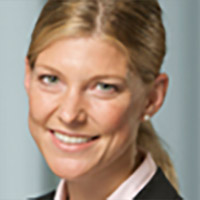Jump start – how to become a successful leadership team
A booming industry provides an encouraging ground for new entrepreneurs - be it through start-ups,...
„All of us are destined to shine like children do“. These words by Nelson Mandela came to me, shortly after an executive coaching session with a division manager from the finance industry. We had talked about our inner shares and related attitudes (child-attitude, parent-attitude and adult-attitude). We also discussed which attitude is the most useful in maintaining your self-efficacy in today’s challenging environment. While transaction analysis is all about the integration of these three shares, in coaching we use the power of the inner adult to set and achieve our goals, whilst being generous, brave and open to gain experience.
Hence, we spoke about where those attitudes child/parent are coming from and why they are so deeply rooted in our hierarchic societal order. My client, let’s call him Sebastian, had meanwhile asked himself whether one can have favourite attitudes or whether every human being is actually inherently “adult” - being able to cooperate with others in a relaxed way and interact with them at eye level- without losing sight of their own goals. Sebatsian insists:
„But there are people, who do not want to take responsibility and prefer having an „unconscious“ and helpless attitude towards their superiors or the organization. Therefore I have to act parental and take over in order to get things done!“ So, I ask him „Really? Have you tried it in another way with these team members?“
We role play a few simple changes in his leadership style, which he aims to test out on an especially passive employee.
When we meet again six weeks later, he immediately gets to the point: „ We found a completely new way of working together, me and Kai. We are not anymore playing the game “I convince you to do what we have to get done and additionally deliver the success recipe for how to do it. Rather, I ask him what he thinks is realistic to get done in a certain time. I ask him which approach he would recommend, based on his experience. And we brainstorm together which resources are needed to implement his plans. Even for monitoring the progress and goals he offered an idea.”
Sebastian confesses, that this leadership style looked completely inefficient to him in the beginning – it seemed so much easier to pre-write everything for his team member. And he actually was seriously worried, that he would never be able to reach his ambitious divisional targets like this, experiencing that his new leadership and cooperation style was demanding a lot more time and energy than the simple “order and command” style he used beforehand.
I ask Sebastian whether he thinks this “investment” from his side will pay off.
He affirms. Finally, he is seeing the chance of having a full-fledged independent and focused team member. Of course, both of them would fall into old patterns from time to time “but since his first positive experience, Kai has started to get the taste. Of course, I will monitor his progress closely, but I have the feeling that that will soon no longer be necessary.”
This time we end our session with a philosophical question: Do even children themselves prefer the adult attitude? Sebastian and I recall our experiences with our own families and come to the conclusion: Yes, Children have the right to be children and above all, need protection from a lot of things. But as soon as they have the required skills and a realistic self-awareness, they are often even closer at the adult-attitude than us adults. Brave, curious and dedicated to life. In the belief in one’s own competences and in a benevolent environment. Children love it to be self-effective, to decide themselves and to feel that they can try out things and can take their own risks and learning curve. Things that we often unlearn when we grow older.

Executive Coaching by Julia Weiss aims to unleash the full potential of her client in her / his varying roles, thus enabling the client to achieve a sophisticated and sustainable level of performance. Julia provides a learnable approach to[nbsp]identify constraints to growth and development[nbsp]at an early stage and to proactively manage them before they compromise the individual performance.
Together with her clients Julia defines attractive and appealing objectives that are shared and achievable for the individual and for the team. In doing so, Julia does not leave the learnings on a "esoteric" or abstract level. In contrary she facilitates their application to actual challenges in the corporate world – whether that would be questions of leadership, change management or strategic realignment.
Julia started her professional career as a Strategic Advisor, with focus on M[&]A, change management and organizational redesign in the media, telecommunications and automotive industry. She held several top management positions, lately as Managing Director Sales for an international media company. During this time she discovered the power of coaching to enhance the performance of executives as well as work teams and facilitate change processes.
Julia graduated from WHU in 1998 and from Harvard Business School in 2008. She is Member of the non executive board of the Leadership [&] HR program at ESMT, trainer and speaker for various topics including leadership and sales management.

A booming industry provides an encouraging ground for new entrepreneurs - be it through start-ups,...

Executives often fall - after several years in the same position - internally sidelined and wait...
Leave a Comment